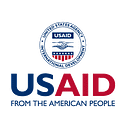Peer Trainers Champion Health Workforce Reforms in Timor-Leste
New employment policies promote equity and opportunity for health workers
Julia da Costa Freitas was selected to become one of 15 peer trainers deployed by the Ministry of Health to operationalize its new human resources policies and job descriptions manual. As a recruitment officer in Timor-Leste’s National Directorate of Human Resources (NDHR), Freitas received in-house training and coaching to disseminate the new manual and orient more than 450 health service staff on its use in 9 of the country’s 13 municipalities.
Ms. Freitas smiled as she described her first presentation to a roomful of health staff in Baucau, a town in the east of the country. “I was nervous, of course, but my fear disappeared as soon as I focused on how to present so my colleagues would understand me,” she recalls. “Afterward, I felt wow — it went really well!”
Health care staff in Timor-Leste have long struggled with a lack of clarity about their roles, required competencies, and policies surrounding performance evaluation and career progression. Many do not have the necessary training for their assigned tasks. Unclear delegation protocols further complicate their ability to deliver quality health care services to their clients.
In response, the Ministry of Health has made it a top priority to develop a set of standardized, competency-based resources, including job descriptions, recruitment policies, and performance evaluation criteria for health workers.
In January 2023, the NDHR enlisted the support of the USAID Local Health System Sustainability Project (LHSS) to develop the ministry’s first job descriptions manual, featuring 40 locally validated primary health care position descriptions.
Through these reforms, the ministry aims to improve equitable access to employment, professional development, and promotion opportunities for current employees and those aspiring to join the health workforce.
Developing the manual was a highly participatory process, with engagement of frontline health workers, ministry managers, and human resource officers from the national to municipal levels. Timor-Leste’s first-ever health sector civic engagement network, known as REBAS-TL, also played a role in developing the manual. Representing 43 local organizations, the network ensured community priorities and contexts were closely reflected in this new resource.
NDHR identified internal champions, including Ms. Freitas, to roll out the new policy guidance and spearhead peer-to-peer trainings in selected municipalities.
Health workers are welcoming the new policies. “We’ve been waiting for the new performance evaluation tools and job descriptions to ensure fair performance rating, recognition of our work, and to feel valued,” said a health worker who completed one such training.
The NDHR trainings promote staff ownership of the human resources management reforms, helping ensure they become institutionalized practices. Former NDHR director Augusto Joaquim Pinto, who oversaw the employment reform process, commented, “Training gives people a chance to think about the right way to do tasks by asking colleagues and cooperating with others.”
Following positive feedback from staff on the new policies and job descriptions, NDHR will be expanding its reforms to include health care positions at secondary and tertiary facilities.
After only a few months, Ms. Freitas’s fellow trainers have noticed how much her public speaking skills and confidence have grown. Now recognized as champions of the reform process, she and the team of expert trainers will play a critical role in sustaining the rollout and system-wide adoption of the new policies after the LHSS Project ends.
